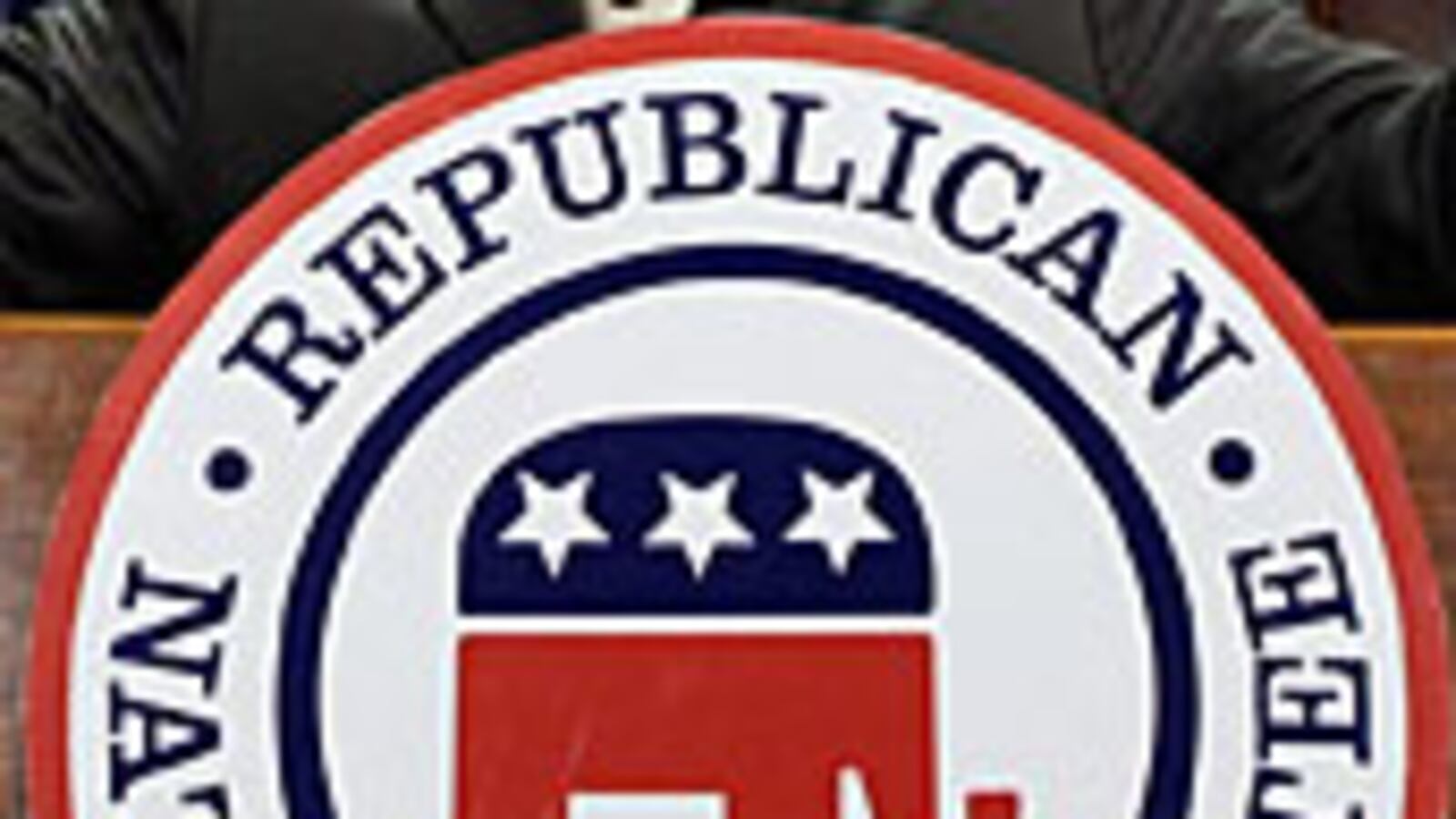
The secret GOP memo calling for Obama fear-mongering is sure to backfire, alienating GOP donors at every level. Plus, Eric Alterman on the RNC playing the fear card and Benjamin Sarlin on ticking off the tea party crowd.
The Republican National Committee plans to fundraise this election cycle by exploiting fear of President Obama, Politico reported Wednesday, citing a confidential fundraising document produced by GOP staffers. The scoop is bad news for those of us who seek an alternative to President Obama's domestic agenda: negative campaigns yield neither policy ideas nor a mandate to implement them, even when they are successful.
But certain pages from the controversial document may prove surprisingly helpful to conservative reformers and tea partiers alike, insofar as they confirm accurate critiques of the Republican establishment in Washington DC.
Give to a particular candidate, a trustworthy advocacy organization, or a specific cause in which you believe. And starve the RNC.
These excerpts show that the RNC misleads its donors, ensconces itself in the trappings of the cultural elite, and treats the conservative base with striking condescension. Ben Smith summed it up aptly in his report. “It lifts the curtain on the often-cynical terms of political marketing, displaying an air of disdain for the party’s donors that is usually confined to the barroom conversations of political operatives,” he wrote. “Manipulating donors with crude caricatures and playing on their fears is hardly unique to Republicans or to the RNC—Democrats raised millions off George W. Bush in similar terms—but rarely is it practiced in such cartoonish terms.“
The lesson for folks on the right who make political contributions: give to a particular candidate, a trustworthy advocacy organization, or a specific cause in which you believe.
• Eric Alterman: The RNC Plays the Fear Card • Benjamin Sarlin: Ticking Off the Tea Party CrowdAnd starve the RNC.
The fund-raising strategy, presented as PowerPoint slides by Finance Director Rob Bickhart, may help stoke that kind of revolt; its content is likely to alienate would-be GOP donors at every targeted income level.
The wealthiest Republican Party boosters will resent the assertion that peer pressure and ego motivate their giving. The analysis is too sharp not to sting.
The rank-and-file will raise eyebrows at leaders who cast the GOP as the home for regular Americans while the party formulates its fundraising approach at $2,500-a-head golf course retreats. Is it any wonder that the resulting strategy calls for courting big donors with special access, overseas trips, and pricey entertainment?
The most damning part of the PowerPoint, presented under the headline "RNC Marketing 101," lists the GOP's assessment of what motivates its small donors: "fear," “extreme” anti-Obama sentiments, and being "reactionary." It's the most revealing gaffe since President Obama condescended to rural voters, calling them anxious economic losers who bitterly cling to guns and religion. The noteworthy difference: In this case, the reductionist rhetoric caricatures fervent supporters rather than staunch critics.
Damning as the PowerPoint presentation is, the attitudes it betrays aren't especially surprising, nor are they unique to Republicans, or even to political fundraising. Large organizations that rely on distant, under-informed contributors for funds often reflect the career interests and prejudices of staffers more than the people they ostensibly represent.
At their best, political contributions spring from a desire to participate in the civic process. A citizen so motivated hasn't any good reason to rely on the RNC, the DNC or any other opaque, unaccountable organization with unlimited discretion on how to spend its largess—especially in an era when the Internet makes it easier than ever before to fund viable, targeted campaigns to advance any cause, ballot measure or candidate.
Political parties can be useful guides for citizens who haven’t enough time or understanding to make independent judgments about every candidate or issue. Be that as it may, political donors unable to find a worthier organization than the RNC or the DNC are better off accepting that they’re insufficiently knowledgeable to contribute anywhere without getting hoodwinked. Why willingly fund the people most adept at deliberately exploiting your ignorance?
It doesn’t matter if you’re rich or middle class: the prudent course is to treat national political parties with the same cynicism they display toward you.
Conor Friedersdorf, a Daily Beast columnist, also writes for The American Scene and The Atlantic Online's ideas blog.






